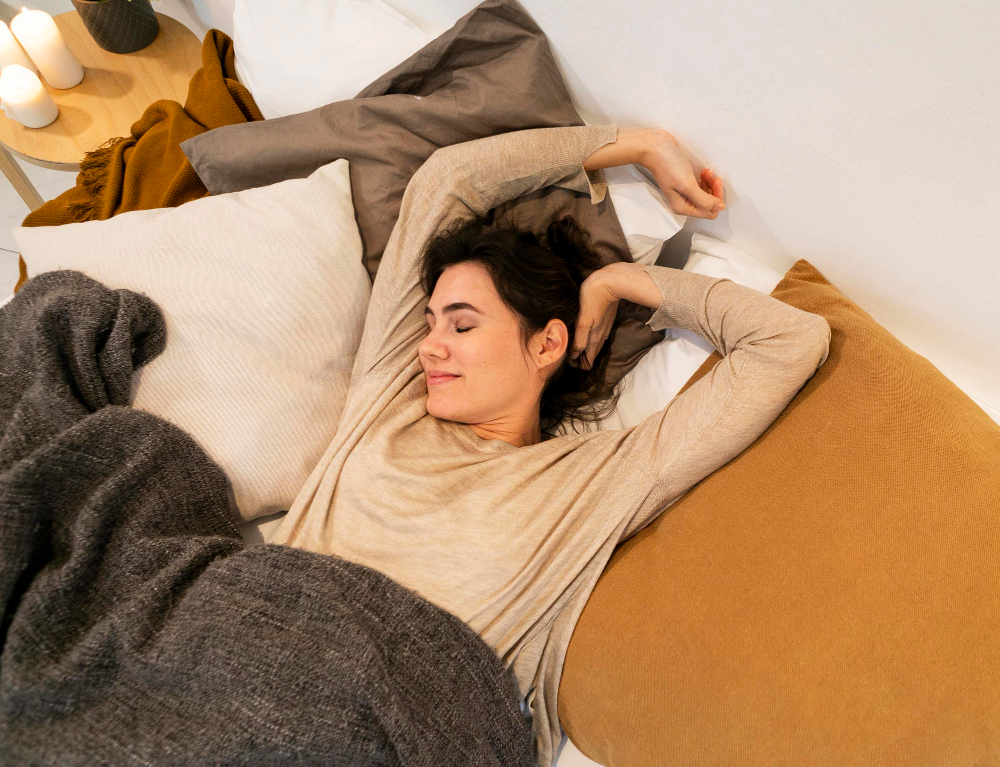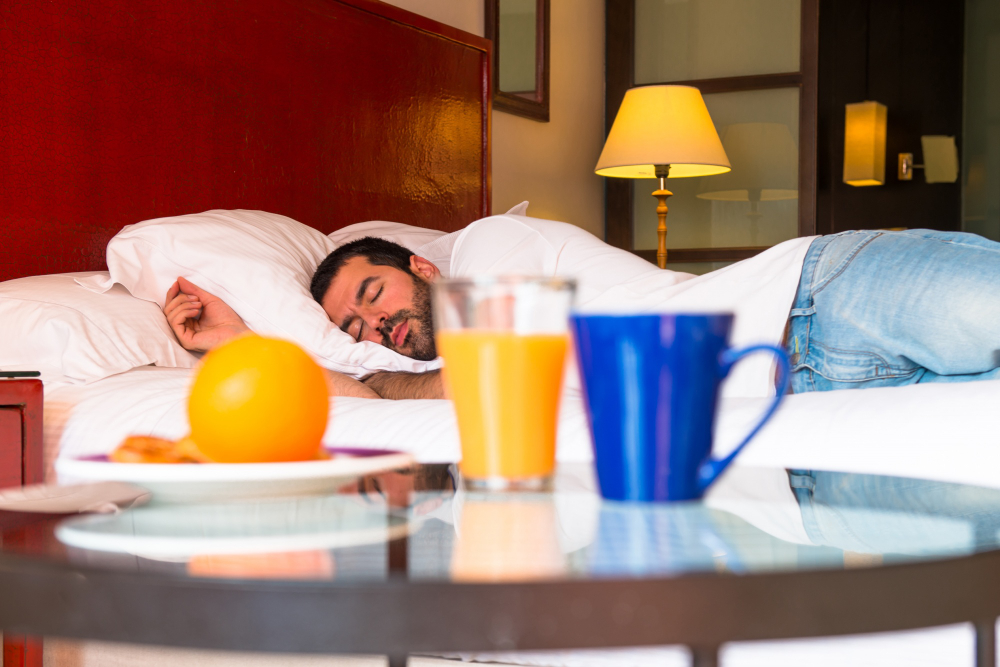Are You a Night Owl or a Sleepy Sloth? Discover Your Sleep Style Now!
Unlock the secrets of your sleep patterns to find out what type of sleeper you are.
Are you someone who springs out of bed at dawn ready to seize the day, or do you thrive in the quiet hours of the night, fueled by creativity and adventure?
Our unique sleep styles, known as sleep chronotypes, play a significant role in our daily rhythms, influencing everything from productivity to personality. Understanding whether you’re a lion, bear, wolf, or dolphin can help you optimize your sleep and wake times for a more energized, fulfilling lifestyle.
Let’s explore the fascinating world of sleep chronotypes and discover which one resonates with you!
What’s the Difference Between Circadian Rhythm and a Sleep Chronotype?
Our circadian rhythm is the 24-hour cycle that controls body process and your sleep-wake cycle. Light and noise can impact our circadian rhythms. The morning sunlight in the morning and evening darkness keeps our circadian rhythm in balance. That’s why it’s important to avoid the blue light from screens a few hours before bedtime.
Our sleep chronotype is the way we experience our circadian rhythm—when we perceive ourselves to be most awake, productive, and efficient in daily tasks.
Is one or both of your parents an early riser? Research suggests that sleep chronotypes are inherited! By better understanding your particular chronotype, you can go to bed and get up at times that are right for you—and sleep much better in between. Our chronotype also affects:
- Appetite
- Body Temperature
- Productive Times
- Personality Type
Take the Better Sleep Council Quiz to Discover Your Sleep Chronotype!
Lion: Early to Bed, Early to Rise
Do you enjoy quiet mornings before others in the house are awake? You are a lion—the chronotype for morning people! People might describe you as being an optimist, practical, or a natural leader who is very scheduled—both during the day and at bedtime.
About 10 to 20 percent of the population are lions who typically wake up around 5:30 a.m. They are quickly ready to tackle the day and tend to have a drop in productivity in the afternoon, often between noon and 3 p.m. This energy drop can take a toll on lions or keep them from participating in evening or late-night activities because their bodies are often ready for sleep earlier than others, around 10 p.m. Unsurprisingly, older adults are often lions.
Bear: Good Morning, Sun!
The bear chronotype is the most common chronotype—about 55 percent of people. Bears can be extroverted and are usually up for a challenge as long as it’s positive. However, bears prefer stability and can be staunchly opposed to changes in their routine.
The bear energy patterns typically follow a solar schedule, meaning that they get up when the sun rises and wind down with the sunset. A bear’s circadian rhythm can realign itself to the changes in sunlight or throw it out of sync. A person who undersleeps during the week accumulates sleep debt, and trying to catch up by sleeping extra on the weekends can cause social jetlag—staying up later in the evenings when they’d rather be getting ready for or in bed.
Like lions, bears fit the modern 9 to 5 lifestyle. Still, they are most productive at work between 10 a.m. and 2 p.m. Evening activities that begin in the late afternoon and wrap up before the sun sets make the bear more likely to participate in social gatherings after a full workday that still gets them to bed by 11 p.m.
Wolf: The Night Owl
Like their namesake, wolves tend to be more motivated and energetic in the evening. They are often risk-takers, impulsive, and creative—always up for new adventures. About 15% of the population is the wolf chronotype.
Bears and lions may not understand the sleep habits of wolves because they are full of energy when they’re ready to settle in for the evening. Wolves typically stay up until after midnight, are more likely to hit the snooze button on the alarm numerous times, and risk being late to work, school, or other morning activities since their bodies aren’t ready for an early start to the day.
Wolves can still get the recommended amount of sleep if they are able to wake up later in the morning, usually between 7:30 a.m. and 9 a.m. This later wake-up time means they start the day between 10 a.m. and noon, with peak energy between noon and 9 p.m.
However, wolves who try to start too early in the day can experience social jetlag and poor mental and physical health resulting in depression, seasonal affective disorder, psychiatric disorders, or substance use disorder. Speak to a healthcare professional immediately if you think you might be experiencing symptoms of adverse mental or physical health.
Dolphin: Here, There, and Everywhere
Many people consider dolphins cute and playful creatures, and this rare chronotype tends to be more chaotic than the others. Dolphins can be detail-oriented, intelligent, and cautious introverts who avoid social situations because they are too tired or energetic and anxious—a middle ground is hard to find. Only about 10 percent of people are dolphins.
Restless, nervous energy in the evening and at night makes getting rejuvenating, quality sleep difficult for dolphins. They can struggle to fall asleep, wake up frequently at night, and struggle to get back to sleep. Dolphins are also more susceptible to noise and light influences than other chronotypes, which can lead to insomnia at some point in their lives.
Why does this happen? A dolphin’s entire brain doesn’t rest during sleep. Instead, one half of the brain sleeps, and the other half is active and alert. Brain activity actually increases in the evening, along with higher blood pressure and cortisol (the stress hormone) levels. This can make it harder for dolphins to experience wakefulness in the mornings when blood pressure and cortisol are lower.
Dolphins have a much smaller window of time to complete challenging tasks than the other sleep chronotypes, about two hours between 10 a.m. and noon. They can experience low energy until late afternoon and require the entire evening to relax and recover from the day before heading to bed around midnight.
Tips for All Sleep Chronotypes
It’s fair to say that no one fits perfectly into one sleep chronotype. Chronotypes can overlap, or your sleep-wake schedule might not coincide with your work or school schedule. Here’s how you can embrace your sleep chronotype to make it work better for you!
Brighten Your Space
Light exposure helps you wake up more easily and stay awake through periods of low productivity during the day. Open your curtains and step outside first thing in the morning to signal that it’s time to get up and move. Take a walk outdoors or turn bright indoor lighting to power through an afternoon slump.
Let Yourself Be Tired
Go to bed only when you feel tired. Don’t lay in bed tossing and turning or nod off to the TV. In fact, getting a second wind, so to speak, can be a warning. Your body is trying to tell you that it’s tired and needs rest.
Stick to a Bedtime Routine
Let’s say you’re a bear who has a hard time falling asleep. Instead of watching TV until 11 p.m., design a bedtime routine that includes relaxing activities like taking a warm bath, reading, or listening to music from 10 to 11 p.m. Start your bedtime routine at the same time every night and get up at the same time each morning (even on weekends) to maintain a healthy circadian rhythm.
Adjust Your Daytime Schedule
Changing your sleep chronotype is extremely difficult. It’s far better to embrace your natural chronotype and make adjustments to your day-to-day responsibilities. If you’re a wolf who works from 9 a.m. to 5 p.m., start your day with light tasks and tackle complex projects during the afternoon. Likewise, a dolphin might function best with a fluid schedule, such as working from home, that allows adjustments to their start and end time every day.
Whether you’re a lion embracing the morning sun, a bear enjoying a stable routine, a wolf thriving at night, or a dolphin navigating the chaos, recognizing your unique pattern can improve sleep quality and overall well-being. Let your sleep chronotype guide you toward a more fulfilling and energized life!
Take the Better Sleep Council Quiz to Discover Your Sleep Chronotype!



